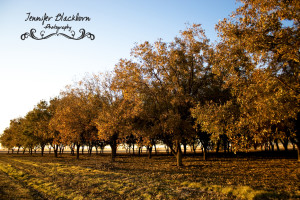Last week I was in Denton, Texas speaking at the Denton County Agricultural Law Program. County Extension Agent Brandon Boughen put together a great program for participants that included Wayne Hayenga on estate planning and myself discussing water law and agricultural leases. Thanks to Brandon for all of his hard work!
It has been a very busy week for news related to agricultural law. Major decisions were issued by the New York Court of Appeals regarding local agencies’ rights to prohibit oil and gas production (read blog here) and by the Fifth Circuit Court of Appeals related to Texas surface water law and the Endangered Species Act (blog post to come on Monday). Here are a few more stories in the news this week.
* San Antonio Water System Deems Proposal to Pump Water from Burleson County Responsive. The SAWS has deemed a water supply proposal submitted by Vista Ridge Consortium responsive to the pending request for proposals. Vista Ridge Consortium has acquired 50,000 acres of water rights per year in Burleson County and proposes to drill a well field there and build a pipeline to San Antonio. Although the proposal was initially the highest ranked among those received, it was deemed “nonconforming” by the SAWS. After months of negotiations, between SAWS and Vista Ridge, the issues have been resolved and the proposal is now considered conforming, allowing it to be considered by SAWS. [Read article here.]
* More Lesser Prairie Chicken Litigation. In addition to the lawsuit filed by an oil and gas group and four New Mexico counties discussed last week seeking to invalidate the listing of the lesser prairie chicken as threatened, a group of environmentalists have filed suit seeking to increase the chicken’s status from threatened to endangered. Defenders of Wildlife, Center for Biological Diversity, and WildEarth Guardians filed suit in federal court seeking to push the agency to list the bird as endangered, offering more protections under the Endangered Species Act. [Read article here.]
* Briefing Complete on Petitions for Review in Edwards Aquifer Authority v. Bragg. This week, the parties completed briefing in the Petitions for Review to the Texas Supreme Court in Edwards Aquifer Authority v. Bragg. The case has now been forwarded to the Texas Supreme Court, which will determine whether to review the lower court decisions. I previously outlined the petition arguments here and you can obtain all briefing here.
*Importance of Documenting Water Quality Before and After Oil & Gas Production. Both landowner advocates and the oil and gas industry in New Mexico have recently encouraged landowners to test the water quality of their wells both before and after oil drilling operations near their properties. This is great advice for all landowners located near oil and gas producing areas. If a landowner does not know and have proof of their water quality prior to mineral production beginning, he or she will likely have a must more difficult time proving that any harm was caused by oil and gas production. [Read article here.]
* Lawsuit Filed Against Vermont GMO Labeling Law. Not surprisingly, Vermont’s GMO labeling law has been challenged in court. The Grocery Manufacturers Association, the Snack Food Association, the International Dairy Foods Association and the National Association of Manufacturers have filed suit in federal court, arguing that Vermont’s law violates the interstate commerce clause and the right of free speech pursuant to the First Amendment. [Read article here.]
* Oregon County Officials Evaluating Application of Right to Farm Law to Marijuana Growers. An interesting question has arisen in Oregon with regard to the state’s right to farm statute. (Read more about right to farm laws here.) Does the act apply to farmers growing marijuana, which is legal under Oregon law? County officials have received com plaints about odors, lights, and increased traffic near marijuana operations, the same type of complaints made about other conventional crops that led to the passage of the law. County officials fear their ability to address these issues may be hampered by the protection allowed to farmers pursuant to the right to farm statute. [Read article here.]













